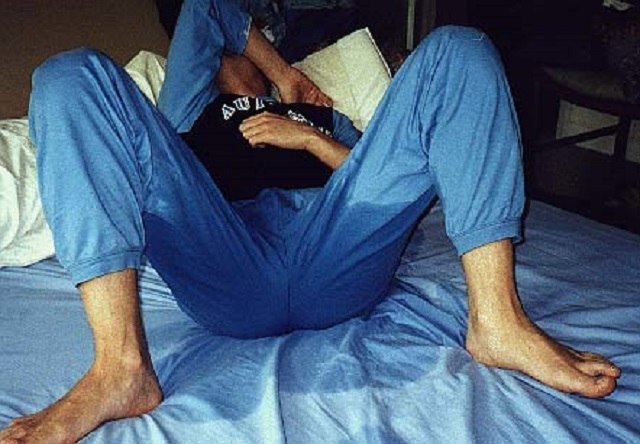

Bedwetting as an adult, also known as nocturnal enuresis, is an embarrassing and frustrating issue, but it's more common than you might think.
It could be caused by various factors such as medical conditions, stress, or lifestyle habits. If you're dealing with this condition, here are some steps you should take to address it:
1. Consult a doctor
The first and most important step is to see a healthcare professional. Bedwetting in adults can be linked to underlying medical issues such as urinary tract infections (UTIs), diabetes, sleep apnea, or an overactive bladder. Your doctor can help identify the root cause and recommend appropriate treatment options.
2. Limit fluid intake before bed
Try to reduce your fluid intake in the hours leading up to bedtime, especially drinks that contain caffeine or alcohol, as these can irritate the bladder.
Aim to stop drinking fluids at least two hours before going to bed to give your body enough time to process liquids.

3. Establish a nighttime routine
Creating a routine that helps train your body can make a difference. Make sure to empty your bladder right before going to bed and even set alarms throughout the night as a reminder to wake up and use the bathroom. Over time, this can help condition your body to hold urine better at night.
4. Manage stress
Emotional stress and anxiety can sometimes contribute to bedwetting. Finding healthy ways to manage stress, such as practising relaxation techniques like deep breathing, meditation, or physical exercise, can help reduce nighttime accidents.

5. Consider lifestyle changes
Lifestyle habits, such as smoking or consuming excessive caffeine, can irritate the bladder and contribute to bedwetting. Making changes like reducing your caffeine intake or quitting smoking may improve your condition over time.
6. Explore medical treatments
If lifestyle changes don’t resolve the issue, there are medications available that can help manage bedwetting. For example, some medications can reduce the production of urine at night or relax the bladder muscles. Your doctor can advise you on whether medication is a suitable option for your situation.
7. Use protective bedding
While you're addressing the issue, it's a good idea to protect your mattress by using waterproof bedding or mattress covers. This will make cleaning up easier and reduce the stress associated with potential accidents.

Bedwetting as an adult can feel isolating, but it’s important to remember that it’s a medical condition that can be managed with the right steps. Seeking professional help and making lifestyle adjustments can make a significant difference in your quality of life.
Read Full Story
















Facebook
Twitter
Pinterest
Instagram
Google+
YouTube
LinkedIn
RSS